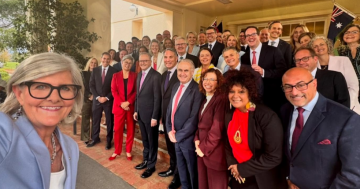Suzanne Weller* says the way people communicate with colleagues and with themselves can have a huge impact on their career.
 Changing is too hard. Transforming our processes will cost too much. We’ll take too big of a hit if we change that now.
Changing is too hard. Transforming our processes will cost too much. We’ll take too big of a hit if we change that now.
You’ve likely heard all of these statements before in conversations about change, maybe even thought or said some of them yourself.
Full disclosure: I have definitely said at least two myself.
Change has almost become a four-letter word.
It sparks different emotions, some of the most common ranging from refreshing to discomfort.
For individuals, it can feel like a slog, deciding whether to put energy into areas of our life that haven’t been front and centre (whether it be professional development, career change, or just starting a new exercise routine).
Within organisations, many see it as a painful hurdle, since it takes a good dose of work, investment, and time.
Yes, making real change happen can require all of these.
However, there are small tweaks that can lead to sustained results, starting with the words we choose to speak.
Language is one of the most simple and impactful ways we can create meaningful change.
How we communicate with each other — or even with ourselves through self-talk — can directly influence our thinking and, in turn, our actions.
Language is very powerful.
Language does not just describe reality.
Language creates the reality it describes.
-Desmond Tutu
Research shows that we live the reality we believe.
For example, if you tell yourself “There is no way I am going to be able to do this,” you’re setting the stage for your inability to accomplish something.
You’re limiting your skill-set, zapping motivation and preventing yourself from creating a vision of what’s possible.
You’re restricting what you’re capable of.
What if you tell a new story? Think about a time when you anchored on a goal and achieved it.
What sparked your courage to change? It’s likely you channelled thoughts of possibility that helped you to be successful.
You painted a picture of what success would look like and kept that goal firmly embedded in your mind.
And when you accomplished it, it felt amazing.
Yes, change can be hard, messy, and uncomfortable.
But it can also be eye-opening, invigorating, and inspiring.
Getting outside of the narratives we’re telling ourselves — even if it’s just a matter of switching up a few words — can be a powerful spark.
So if your knee-jerk reaction to change is gravitating toward the negative, take a minute to step back and re-think it through the lens of the words you’re using to describe it.
Some ways to do this include:
- Replace “should” and “must” with “want.”
- Reframe negative statements as positives.
For example, instead of “that’s not something I’m good at,” try “that’s a strength I would like to develop.”
- Examine your “but”s.
If you make a statement and then include a “but” (which could potentially be undermining), stop and see if what follows it is an excuse or a predetermined thought.
- When making a statement about something you haven’t done, tack the word “yet” onto the end.
Language is a simple yet powerful tool you use to create your reality.
Get curious about the words you’re using and investigate how they are potentially working in your favour or holding you back.
*Suzanne Weller partners with clients to maximise talent, transform organisations and teams, and lead from a human-centered place.
This article first appeared at ellevatenetwork.com.











